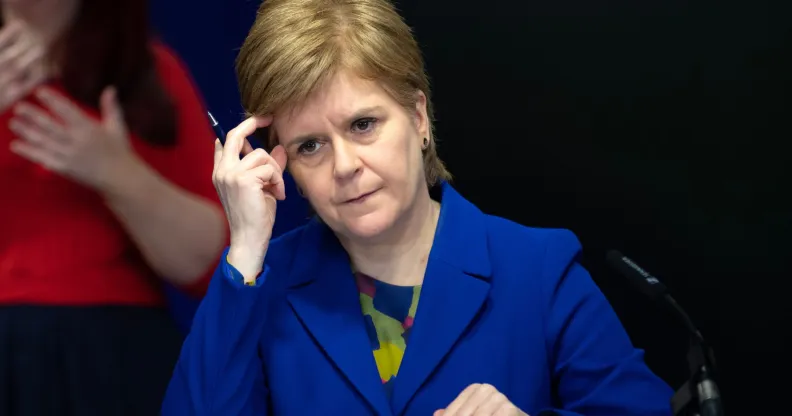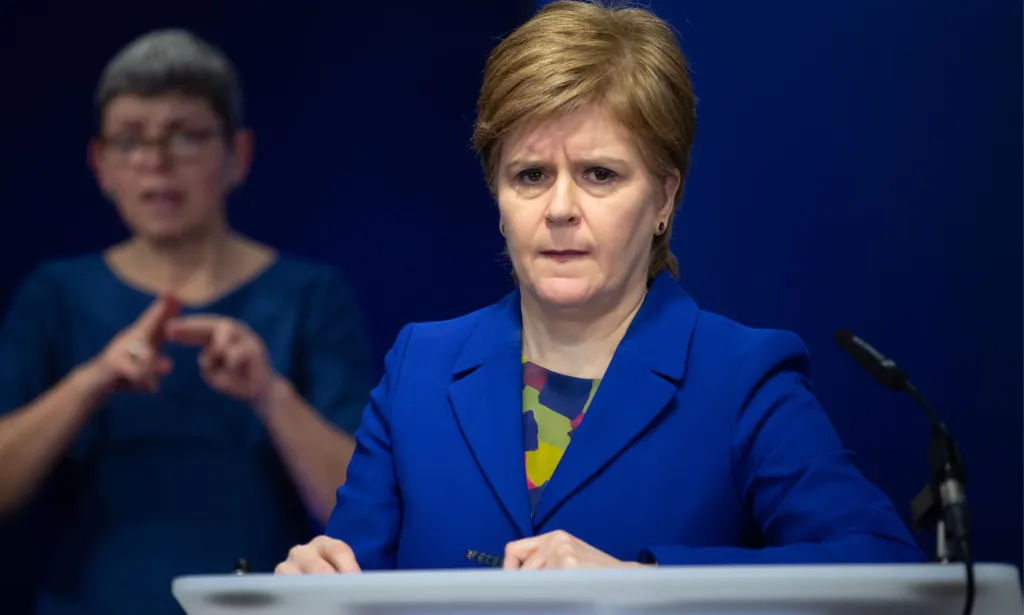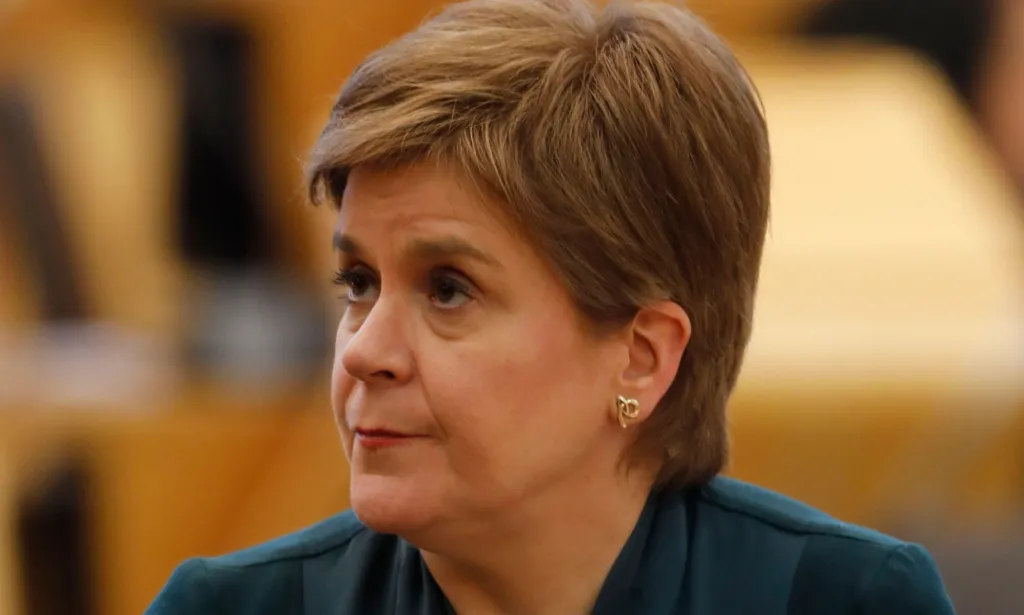Nicola Sturgeon blasts gender critics for using women’s rights to ‘cover up transphobia’

Nicola Sturgeon said some politicians, who now claim to be “defenders of women’s rights”, are using women’s rights as a “cloak” to “cover up transphobia”. (Getty)
Nicola Sturgeon slammed some opponents of Scotland’s gender recognition reform for using women’s rights as a “cloak of acceptability” to “cover up transphobia”.
Scotland’s first minister described how some critics of her government’s Gender Recognition Reform (GRR) bill used women’s rights as a means to attack the pro-trans legislation, passed by Holyrood in December. Though, she said not all opponents of the GRR bill hold this view.
The GRR would make it easier for trans people in Scotland to apply for a Gender Recognition Certificate (GRC), the legal recognition of their gender. But in January, the UK government made an unprecedented intervention and blocked the bill from passing into law.
Sturgeon denounced Westminster’s decision and said some politicians opposing the bill are using women’s rights to “cover up transphobia”.
“There are some people that I think have decided to use women’s rights as a sort of cloak of acceptability to cover up what is transphobia,” she told Global’s The News Agents podcast.
She continued: “Now, again, that’s not everybody who opposes this bill. I want to be very clear about that.
“But there are people who have opposed this bill that cloak themselves in women’s rights to make it acceptable, but just as they’re transphobic you’ll also find that they’re deeply misogynist, often homophobic, possibly some of them racist as well.”
She told the outlet that she’d never heard some politicians and people, “claiming to be defenders of women’s rights”, actually “defend women’s rights in the past” until the current debate around Scotland’s gender recognition reform legislation.
In fact, she heard some “support policies that run counter to women’s rights” in the past.
“We have legislation looming later in this parliament on criminal justice reform to try to deal with issues of low conviction rates for rape and sexual assault, we are likely to be dealing with legislation in months to come around abortion buffer zones,” she said.
“I think it will be interesting to see how many of the so-called defenders of women’s rights in the context of the trans debate suddenly don’t think that all women’s rights are actually important.”
The UK government is making a Section 35 order – the first time such a measure has been used since devolution of power to the Scottish parliament under the Scotland Act of 1998 – to prevent the GRR from gaining Royal Assent, the final stage in any bill.

The act gives the UK government the power to intervene on bills “which the secretary of state has reasonable grounds to believe would be incompatible with any international obligations or the interest of defence or national security”.
Scottish secretary Alister Jack said he believed the GRR could have an impact on UK-wide equalities law. However, despite what Jack believed, the Scotland gender bill has absolutely no effect on the UK’s Equalities Act.
All the reforms would do is make it easier for trans people to apply for a GRC.
The GRR would remove the need for a medical diagnosis of gender dysphoria when applying for a GRC – in line with the advice from the World Health Organization. It would also drop the minimum age for applications to 16 and reduce the time someone needs to live in their acquired gender to just a couple of months.
Having a GRC allows trans people to update their birth certificate, get married or form a civil partnership in their affirmed gender, update their marriage or civil partnership certificate, and have their affirmed gender on their death certificate when they die.
A GRC is not a condition of access to single-sex spaces, and protections for trans people under the Equality Act are not contingent on having a GRC – the majority of trans people do not hold one.

Nicola Sturgeon also raised the prospect the UK government could abolish Holyrood after it used the Section 35 order for the first time on the pro-trans bill.
She wasn’t “100 per cent sure” Westminster would try to abolish Scottish parliament, but she believed there is a “concerted effort to undermine” and “remove powers” from Holyrood.
“I’ve had people on my own side of the independence argument over the years say ‘the Tories are capable of abolishing the Scottish parliament or completely taking away significant powers’,” she said.
She continued: “I’ve always resisted that, that’s hyperbole, let’s not go down that road.
“Now, I still don’t think it is likely they would try to abolish the Scottish parliament – am I 100 per cent sure of that anymore? No.
“But short of that, I do think there is a concerted effort to undermine, de-legitimise and remove powers from this parliament.”

